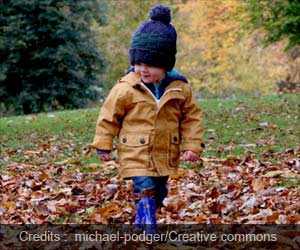A new clinic for children suffering from post-traumatic stress disorder will be opening this month in Baghdad. It will be the first of its kind in Iraq.
War is raging unabated in Iraq, and children are easily the worst affected. A new clinic for children suffering from post-traumatic stress disorder will be opening this month in Baghdad. It will be the first of its kind in Iraq.
Dhiya Moussa, 11, is a stocky child with shaggy brown hair. He cautiously answers questions from Dr. Haider Maliki, and confesses he still can't fall asleep at night."I am afraid of darkness," Moussa says. "After I was released, I was afraid to stay alone in the dark. I don't know why. When I enter into a dark room I get frightened, I immediately switch on the light and run away."
As he is talking, Moussa keeps looking to his father for reassurance.
Pharmacist Moussa Hussein Hassan says his son was kidnapped in 2004, but he still crawls into bed every night with him and his wife.
"My son was held for seven days before they released him," Hassan says. "They locked him in a shed all by himself with rats in the darkness. Before he was kidnapped, he was never afraid. But after that he became terrified of the dark. He goes to bed very late at night and he can only sleep after exhausting himself. He insists on burying his head under my arm to feel safe when he sleeps."
Moussa also developed memory loss and initially wouldn't mingle with other children. Things got so bad that his father brought him to Dr. Maliki.
Advertisement
"Of course, we have many children," Maliki says. He talked about one 13-year-old girl who was kidnapped and raped numerous times.
Children who suffer from PTSD, Maliki says, can abuse drugs or alcohol, stop studying or become violent themselves. He estimates that at least 15 percent of Iraqi children display some symptoms of the condition.
Maliki says that getting families to come forward is a challenge.
"Especially in children, especially in the female, any psychological problem is a stigma," Maliki says. "They deny the disease, but when we examine the child, we discover many problems."
It's not only the families who have had trouble recognizing the problem: Iraq's notoriously inept and corrupt Ministry of Health has provided little help up until now, Maliki says.
He is the only child psychiatrist in the entire country who works at a government hospital. The conditions here — the premiere pediatric care facility in Iraq — are dire. As he talks, sewage from a leaking toilet spreads across the room. No one bothers to come and clean it up.
"I think the government [is] concern[ed] about the security and other issues, but of course you have a big problems of our children," Maliki says. "And the problem increasing every day.
Maliki himself is not a trained child psychiatrist — he took up the position, he says, after seeing that there was no one taking care of the children's mental health.
What he needs for this job, he has taught himself he says.
"I have no training," Maliki says. "I didn't see any child psychiatry center outside Iraq. We told the ministry, we told the government. They say they have no money for the training."
Still, this month the hospital is going to open a new clinic. The government has finally agreed to fund it, and Maliki will head the ward that will exclusively treat children with psychological problems, including PTSD.
Social worker Amna Ali Hussien, who works at the clinic, says it is sorely needed, reports Lourdes Garcia-Navarro of NPR, a prominent nonprofit radio channel.
"We still don't have enough time to see all the conditions admitted to this hospital," Hussein says. "Therefore we really need to open a whole ward. We will open special classrooms for children with psychological disorders at schools, and there will be intensive programs."
There is no doubt that treatment has helped young Dhiya, says his father.
"Thank God after those sessions there has been some improvement in his condition," Hassan says.
His son is able to laugh again, his face lights up and the night terrors Dhiya still feels temporarily held at bay.
Source-Medindia
GPL/L








